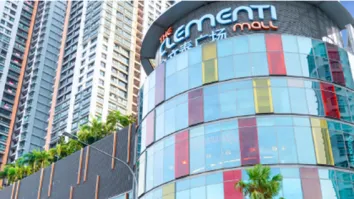
Tokyo Grade A office rents down 1.7% in Q2 as secondary vacancies emerge
Demand from big firms declined as more employees work remotely.
Burdened by the emergence of secondary vacancy from 2020, Savills reveals that Tokyo’s Grade A office market continues to soften this quarter with a rental contraction of 1.7% QoQ and 7.1% YoY to JPY35,157 per tsubo.
Vacancy rates, meanwhile, saw an uptick of 0.6 ppts QoQ and 1.4 ppts YoY to 1.8%. The advent of remote work has also reduced the demand from larger companies and may consequently weaken rents further. Savills says, “We are noticing a trend of some large Japanese corporations committing to reducing their floor space and introducing free address seating for the remaining space as in-office headcount decreases.”
Here’s more from Savills:
Considering the circumstances, the limited levels of new supply until late 2022 in the C5W are welcome and may give the market some time to recover. Furthermore, the demand for new Grade A offices in central areas remains sound. For instance, both Tokiwabashi Tower and Hibiya Fort Tower, which together represent the bulk of new supply in 2021, have high occupancy levels.
Given the current landscape, we expect the recovery of the office market to be K-shaped, mimicking the overall Japanese economy, with central offices holding strong while offices with poorer accessibility suffer. This sentiment is echoed by a survey on office use and future demand conducted by Xymax in April 2021. Here, of the estimated 1,600 corporate respondents, nearly 60% intended to concentrate operations into a central and convenient location going forward.
For example, SMBC Trust Bank plans to cancel over 5,000 tsubo of leases around Tokyo to concentrate their operations into their central headquarters. Itochu Techno-Solutions has also eliminated four leases throughout the city to streamline operations into Kamiyacho Trust Tower with a 10,000 tsubo lease. With such moves expected to occur more frequently, we are likely to see central and convenient areas hold firm in value.
Additionally, the same Xymax survey indicated that around 30% of respondents plan on having satellite offices near transit hubs, which could act as a tailwind for the office market post-pandemic. For now, offices away from stations are seeing higher vacancies, meaning that landlords may have to lower rents further to attract or keep tenants.
Nevertheless, there is some hope for the market overall. The expedited vaccine rollout in Tokyo should support office demand next year as the economy recovers and companies see improved performance with more workers returning to the office. In the meantime, as companies begin planning and executing their post pandemic moves, we expect Grade A markets near central transit hubs to remain competitive but, at the same time, less convenient properties should be in for a tough time.
Large-scale Grade B offices
On one hand, the Grade B market has loosely mimicked the Grade A market’s performance this quarter by decreasing at a similar rate of 1.9% QoQ and 6.6% YoY to JPY26,765 per tsubo. As such Grade B’s rent continues to remain around 70% of Grade A’s rent. On the other hand, vacancy has grown at a faster rate than the Grade A office market, increasing 0.5 ppts QoQ and 2.0 ppts YoY to 2.7%. However, most of the recent supply in the market was Grade A, and with only marginal supply influxes expected over the next few years, vacancy should remain somewhat stable going forward.
At the ward level, Shibuya demonstrated the largest rental decrease this quarter, and the ward’s weakening has become more pronounced. Until Q2/2020, Shibuya’s rents were growing impressively, standing second highest after Chiyoda. However, the ward began to see problems during the pandemic when many IT companies quickly reduced office space and switched to remote work. As Shibuya’s main tenant profile is composed of IT companies, the ward was greatly impacted by this change.
Currently, Shibuya’s average Grade B rents have fallen to one of the cheapest levels in the C5W. Rental declines in Shibuya’s Grade B market are particularly noticeable for office buildings that were charging much more than the market average. As such, it appears that as rents for Grade A offices in Shibuya came down, it became difficult to justify such high rents for Grade B officers in the same market.



















 Advertise
Advertise







